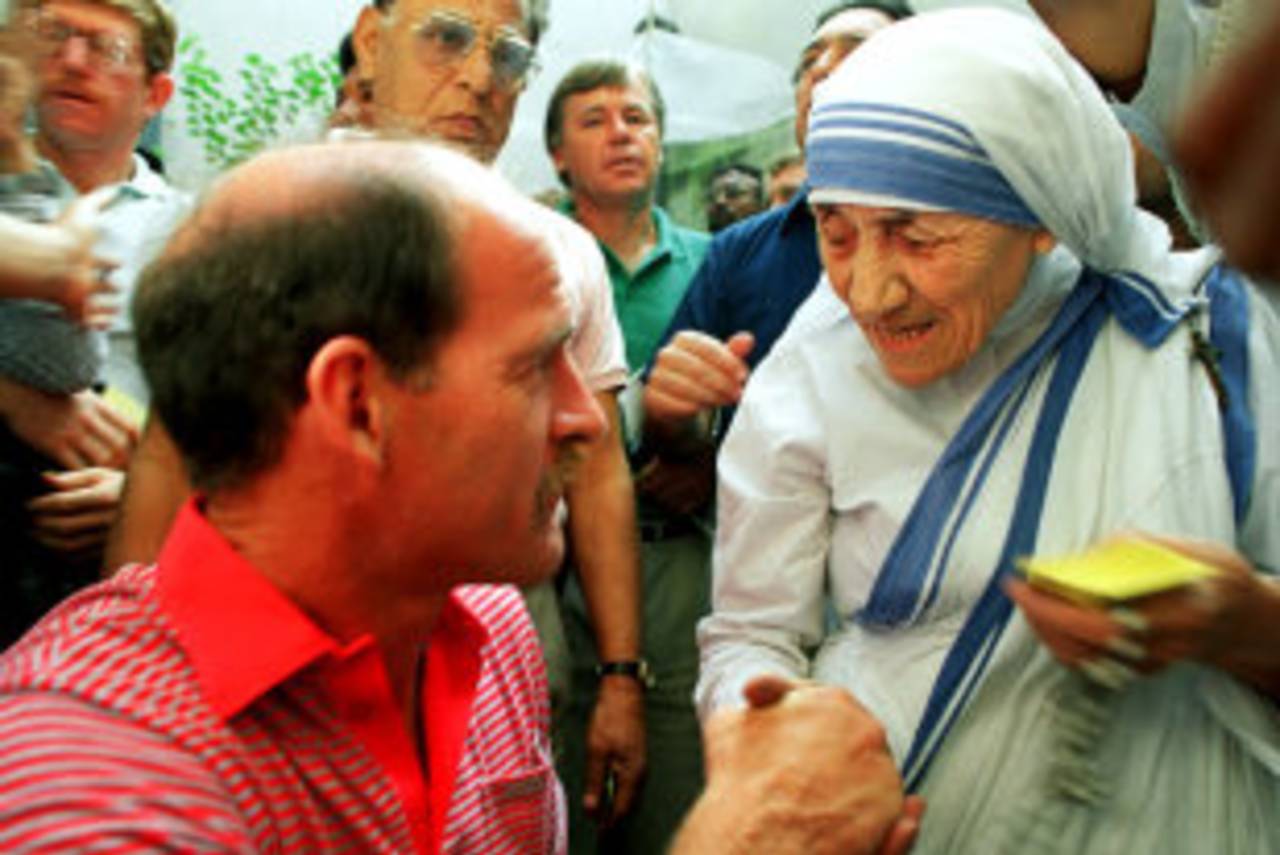South Africa's readmission
Their return to international cricket showed that social change could manifest itself in sport
Rahul Bhattacharya
Jan 22, 2011, 3:26 AM

The South African team met Mother Teresa on their historic trip • PA Photos
1991
South Africa's return to the realm of international cricket before a full and appreciative Eden Gardens was a poignant moment in their history and not much less significant for the sport.
Almost instantly they changed the dynamic of the playing field. Having resiliently maintained their strength during two decades in exile under the supervision of Ali Bacher and friends, they became Australia's greatest challenger for world supremacy. They held them 1-1 in home and away Tests in 1993-94, and six years later clean-swept India in India.
With virtually every other major team in decline or limbo, South Africa made cricket in the 90s more interesting. The 2000s had many up-and-down moments for them but beating Australia in Australia in 2008-09 pushed them back into the spotlight as challengers.
In 1998 they formalised a quota for coloured players in the national team as a redress to the apartheid years. The notion grated with some, and the jury is still out on its success, but South Africa were right on principle. If isolation proved that in special circumstances sport could be used to influence social change, readmission showed that social change could manifest itself in sport.
This article was first published in Wisden Asia Cricket magazine in 2003